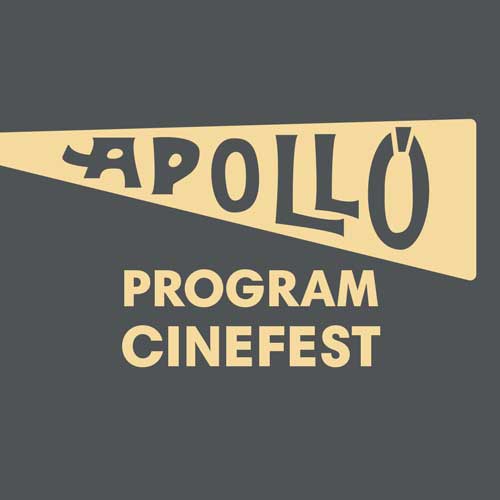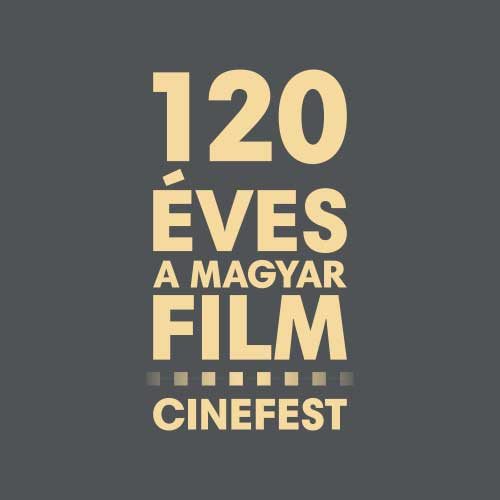Apolló program
THE NEW LOCAL-PATRIOTIC PROGRAM OF CINEFEST FOCUSES ON THE HISTORY OF MISKOLC AND FILM. THE HUNGARIAN FILM CELEBRATES ITS 120TH BIRTHDAY THIS YEAR, AND THE PROGRAM BRINGS THE MISKOLC-RELATED ASPECTS OF THIS HISTORY INTO FOCUS. PAYING TRIBUTE TO MISKOLC’S FIRST, NO LONGER OPERATING MOVIE THEATRE, THE APOLLO, WE ARE PLANNING TO CREATE A SPECIAL ATMOSPHERE WITH SCREENINGS AT THE FORMER VENUE. 11 SEPTEMBER 2021, 1:00 PM – 5:00 PM Weidlich Court (former Apollo Cinema) Miskolc, 19 Széchenyi Street TIME TRAVEL TO THE WORLD OF OLD MOVIES (family program) The atmosphere of the silent film era is evoked by the PONTközPONT’s program. The audience has a chance to peek into the art of filmmaking of the era by watching how the scenes were shot, how the technical equipment of the time operated and how certain phases of production worked. Adults and children are all welcome at the program that is organized with the participation of the National Film History and Adventure Park and the BluePixel Communication and Production Office. Fun moments and exciting experiences await all participants! 11 SEPTEMBER 2021, 5:00 PM Weidlich Court (former Apollo Cinema) Miskolc, 19 Széchenyi Street The birth of Hungarian film comes with the premiere of the first consciously directed Hungarian film, The Dance. In 1901, Béla Zsitkovszky shot the film at the rooftop of Urania Cinema in Budapest, with excellent actors and the ballerinas of the Opera House. The film premiered on April 30, 1901. Zsitkovszky, who was a photographer by profession, lived and worked in Miskolc for years and had a studio in today’s Széchenyi Street. FROM THE DANCE TO CLUJ NAPOCA: FIVE FRUITFUL YEARS OF THE HUNGARIAN FILM (presentation) (30 min) The history of the Hungarian silent film started with The Dance and continued in Cluj-Napoca with the participation of world-famous artists such as Sándor Korda (i.e. Sir Alexander Korda) and Mihály Kertész (i.e. Michael Curtiz). The Hungarian silent film has a history of barely thirty years and only five of these were what the pioneers of Hungarian film, above all, the genius theater director and producer Jenő Janovics had dreamed of. From the 600 feature films made at this time only fragments survived. Yet, as a result of decades of research by the Hungarian Film Archive, the researchers were able to put together a relatively comprehensive guide to this heritage. Film historian Márton Kurutz, head of research and collection at the Film Archive, will deliver an exciting speech on this period – with a lot of film excerpts. THE VILLAGE ROUGE (screening) D: Miklós M. PÁSZTORY (HUNGARY, 1916) 69 MIN The film version of the popular folk play was photographed by Béla Zsitkovszky, the director of the very first Hungarian film, The Dance. Screening with live music! A LONG ROAD TO THE PREMIERE (presentation) 30 min Márton Kurutz’s presentation shows us the path of filmmaking from script to premiere with rarely seen excerpts and photos from Hungarian films made in the last 120 years. 12 SEPTEMBER 2021, 5:00 PM Weidlich Court (former Apollo cinema) Miskolc, 19 Széchenyi Street THE CITY WITHOUT JEWS / DIE STADT OHNE JUDEN (screening) D: Hans Karl BRESLAUER (Austria, 1924) 80 min In 2014, a new version of probably the most important Austrian silent film Die Stadt ohne Juden (The City Without Jews) has been found in Paris. The work everyone thought to be lost is a creepily ominous portrait of a mentally and economically impoverished society from which Jews were expelled. It was shot in 1924. In order to save the film from destruction, the Austrian Film Archive has launched the largest cultural community founding project in Austrian history. One of the screenwriters of Hans Karl Breslauer’s film was Ida Jenbach, who was born in Miskolc. Before the screening of the film we talk about her and the film that is an expressionist masterpiece way ahead of its time. Participants of the discussion: Vilmos Fedor writer, György Báron film historian, Péter Muszatics film historian, curator of the CineClassics program One hour before the screenings we would like to welcome those interested in the milieu of the 1920s. Go back in time with us in the Weidlich Court with posters, cellar cinema tour, and a popcorn-scented motion picture experience!



